Today marks the 20th anniversary of the Good Friday Agreement, a 1998 peace treaty that sought to permanently end sectarian and political violence in Northern Ireland.
“The Troubles” began in the 1960s, a mix of political, nationalistic, and religious conflict over the status of Northern Ireland and her citizens. Loyalists (those loyal to the British Crown and primarily Protestant) slightly outnumbered Republicans (those who wished to see Northern Ireland become part of Ireland again and primary Roman Catholic), but held a disproportionate amount of power. For example, most government jobs went to Loyalists…the police force in Belfast was 90% Protestant.
Along with other civil rights movements that sprang up around the world in the 1960’s, Irish Republicans also began a campaign to eradicate what they viewed as institutional discrimination intended to keep the Catholic minority in check.
Protests were crushed by British forces, violence broke out, and a 30-year conflict began.
By the time 1998 arrived, the situation seemed bleak. Over 3,000 had been killed and over 45,000 injured, the majority civilian.
Riots, protests, and other civil disobedience led to a British-imposed segregation of Catholic and Protestant neighborhoods, the erection of 18-foot walls dividing these neighborhoods and “Peace Gates” that were locked each night so that no one could go from neighborhood to neighborhood. It was an eerie, Orwellian world. So-called “no-go areas” were neighborhoods in which Loyalists and British forces could not safely operate.
These areas were primarily patrolled by the Irish Republican Army (IRA), the primary paramilitary branch of the Republicans. Bombings were routine, snipers targeted civilians, and every interim ceasefire eventually crumbled.
A Time for Peace
By 1998, both sides were ready to talk, hoping to hammer out a permanent solution. After days of back-and-forth late night discussion, an agreement was reached on Good Friday, April 10, 1998. As shared by the BBC:
The Belfast Agreement (or Good Friday Agreement as it would become known) contained proposals for a Northern Ireland Assembly with a power-sharing executive, new cross-border institutions with the Republic of Ireland and a body linking devolved assemblies across the UK with Westminster and Dublin. The Republic of Ireland has also agreed to drop its constitutional claim to the six counties which formed Northern Ireland. There were also proposals on the decommissioning of paramilitary weapons, the future of policing in Northern Ireland and the early release of paramilitary prisoners.
Despite occasional spurts of violence over the last two decades, the agreement remains in force and is marked as the official end of The Troubles.
Four years ago, I had the chance to visit Northern Ireland with my friend John (not this John). Even today, the visit still sends chills down my spine. We spent a night in Londonderry or Derry (how you call the city depends upon what side of the conflict you are on), one of the most notable “no-go areas” I mentioned above.
I was struck by the Irish flags and signs like this all over the city:
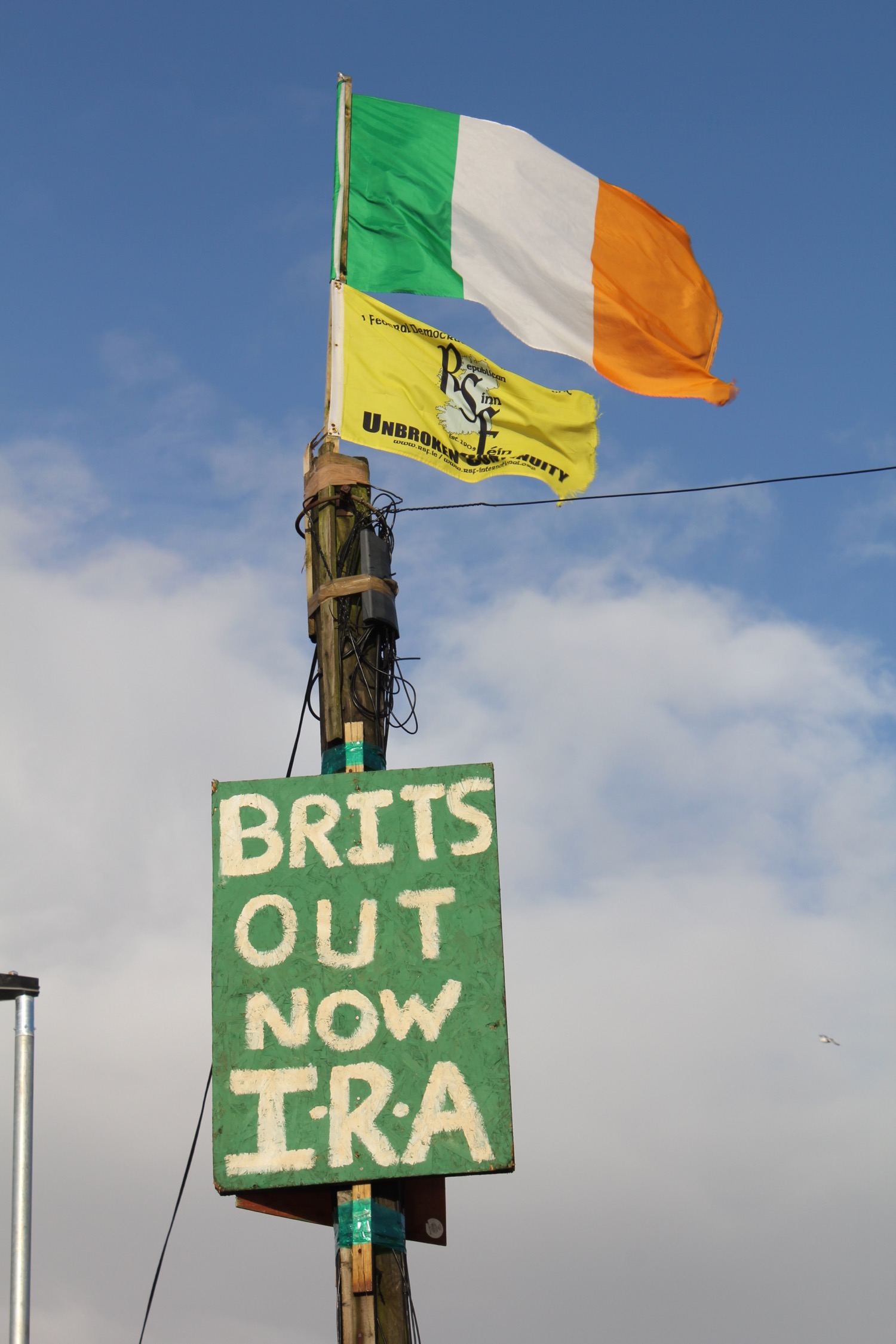
Contentious murals remain, some of them freshly painted. There may not be much violence any longer, but bitter division remains.
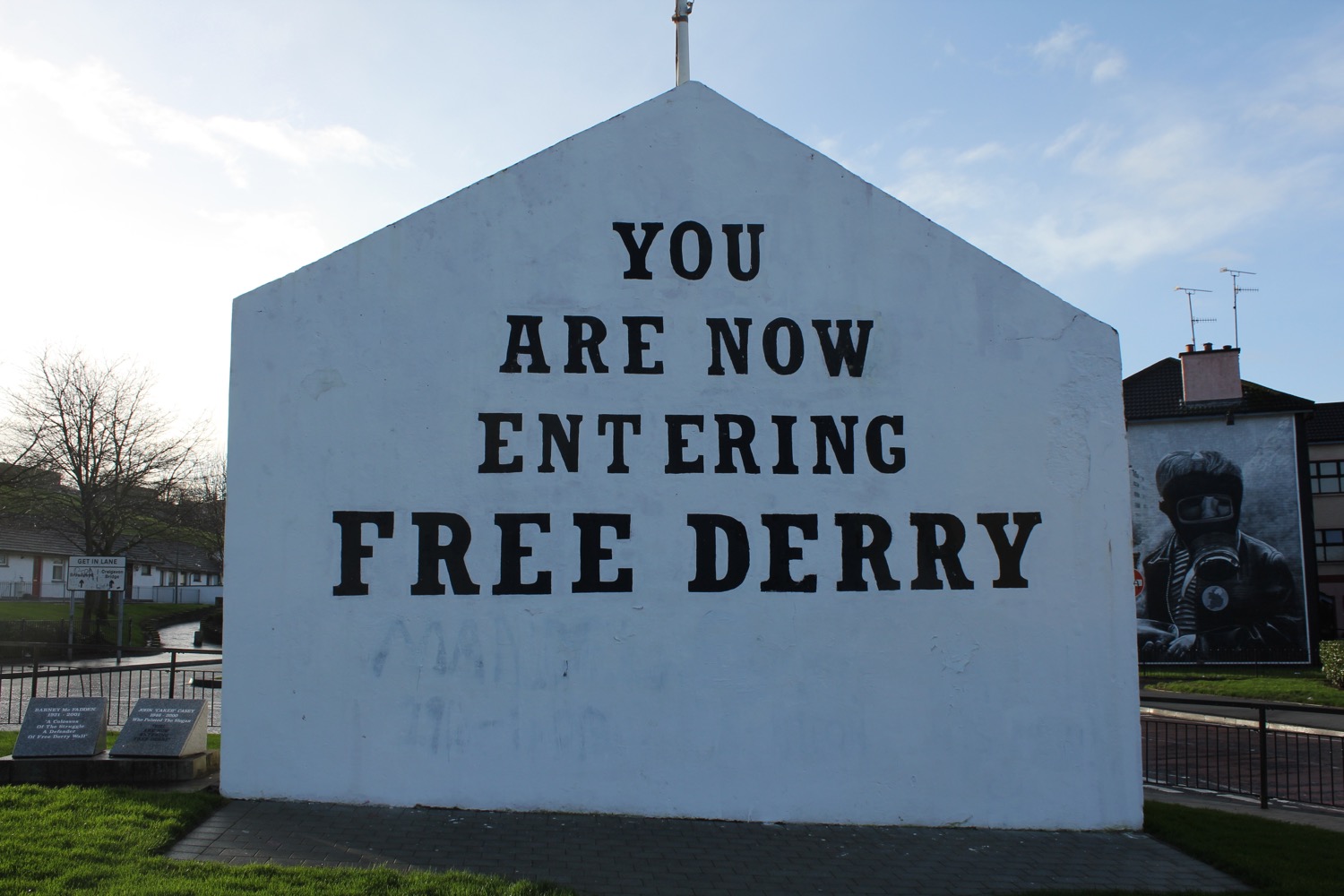
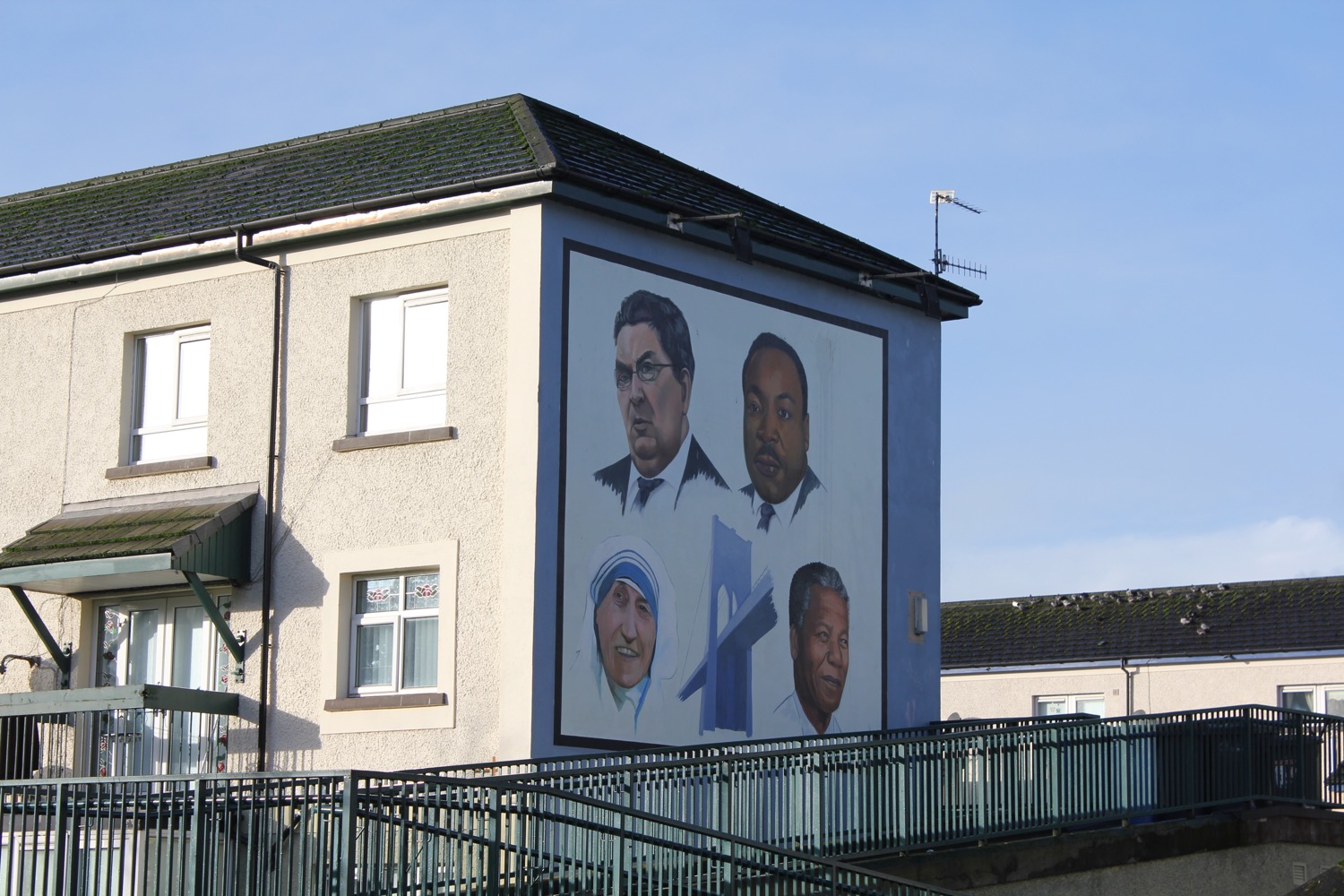
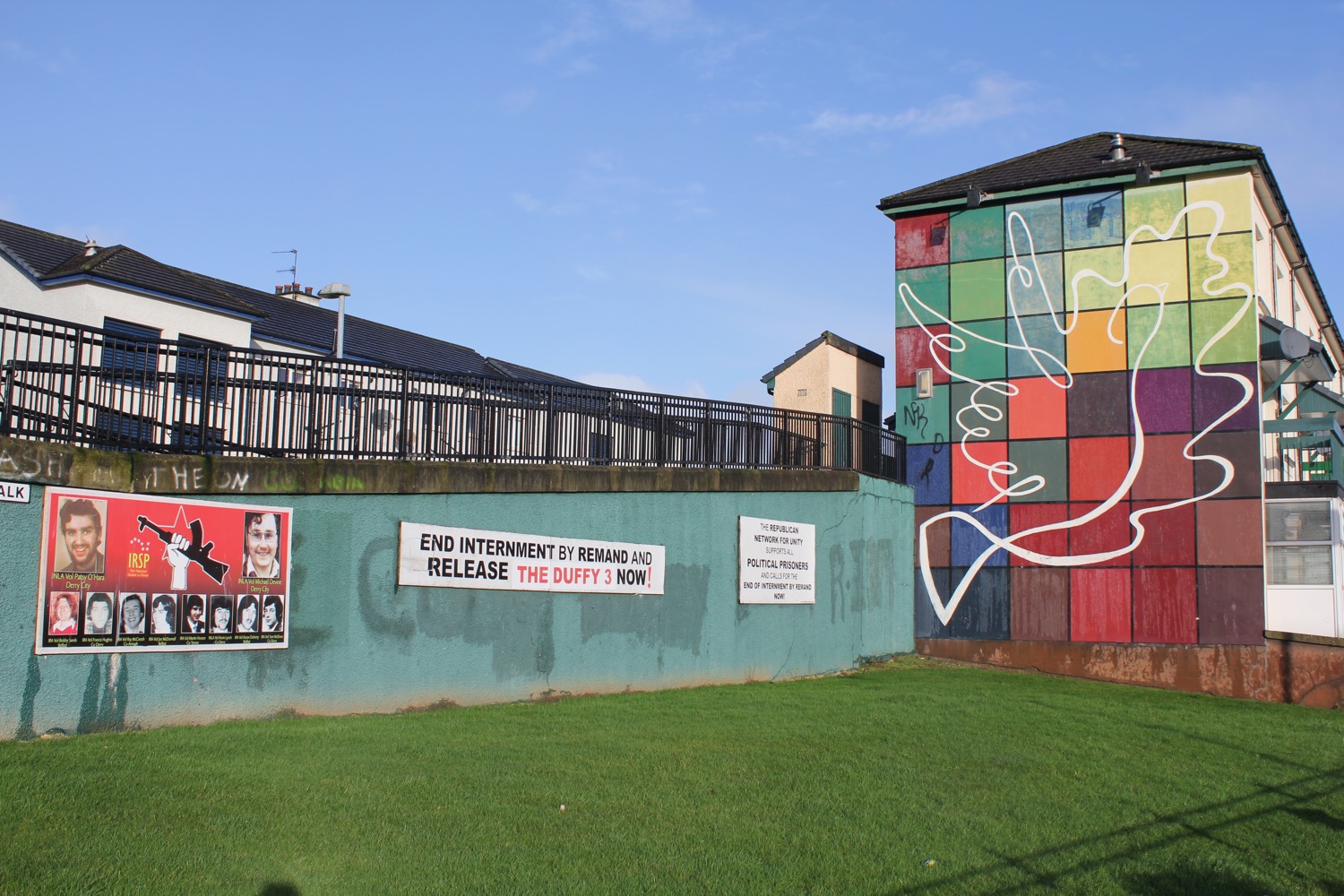
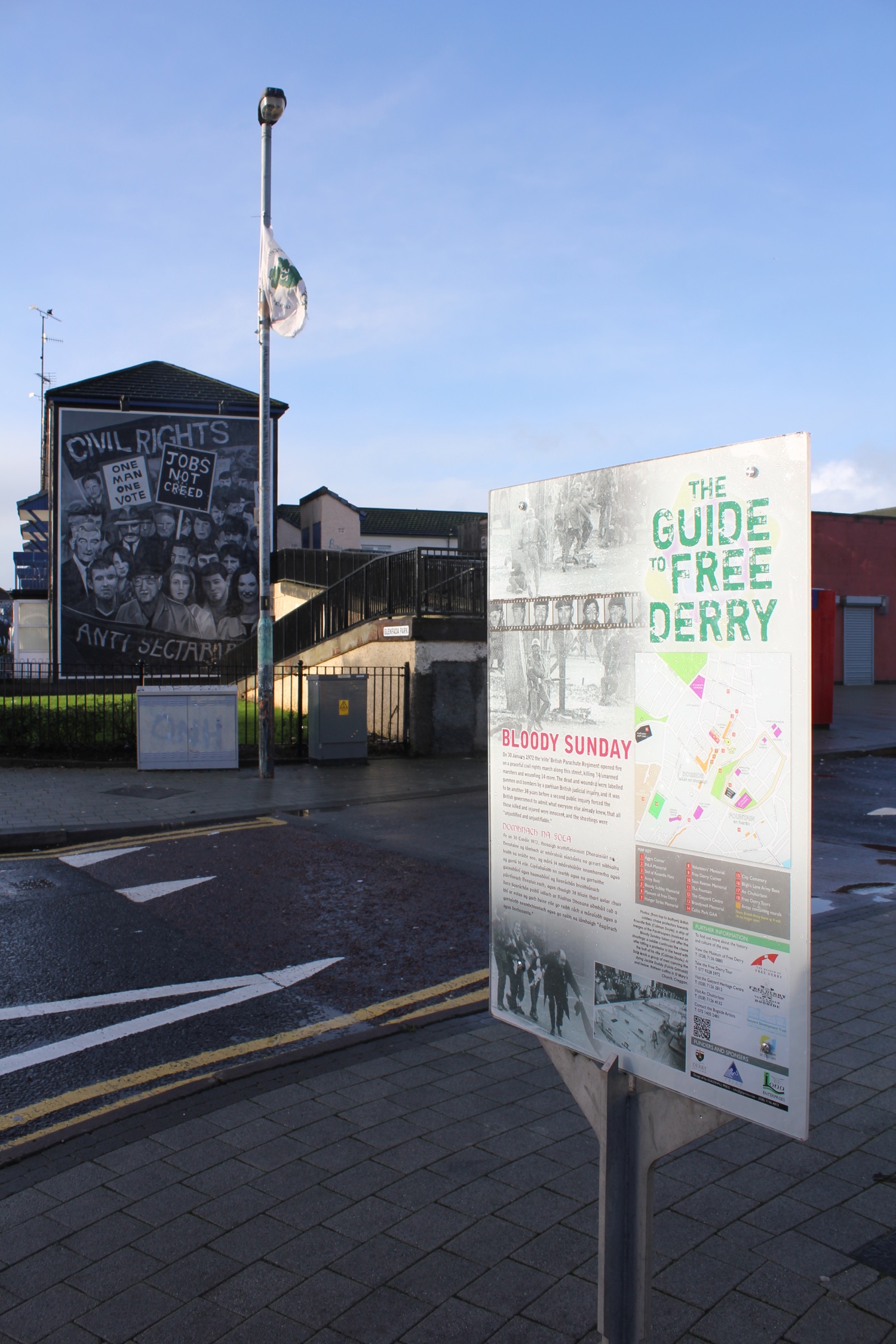
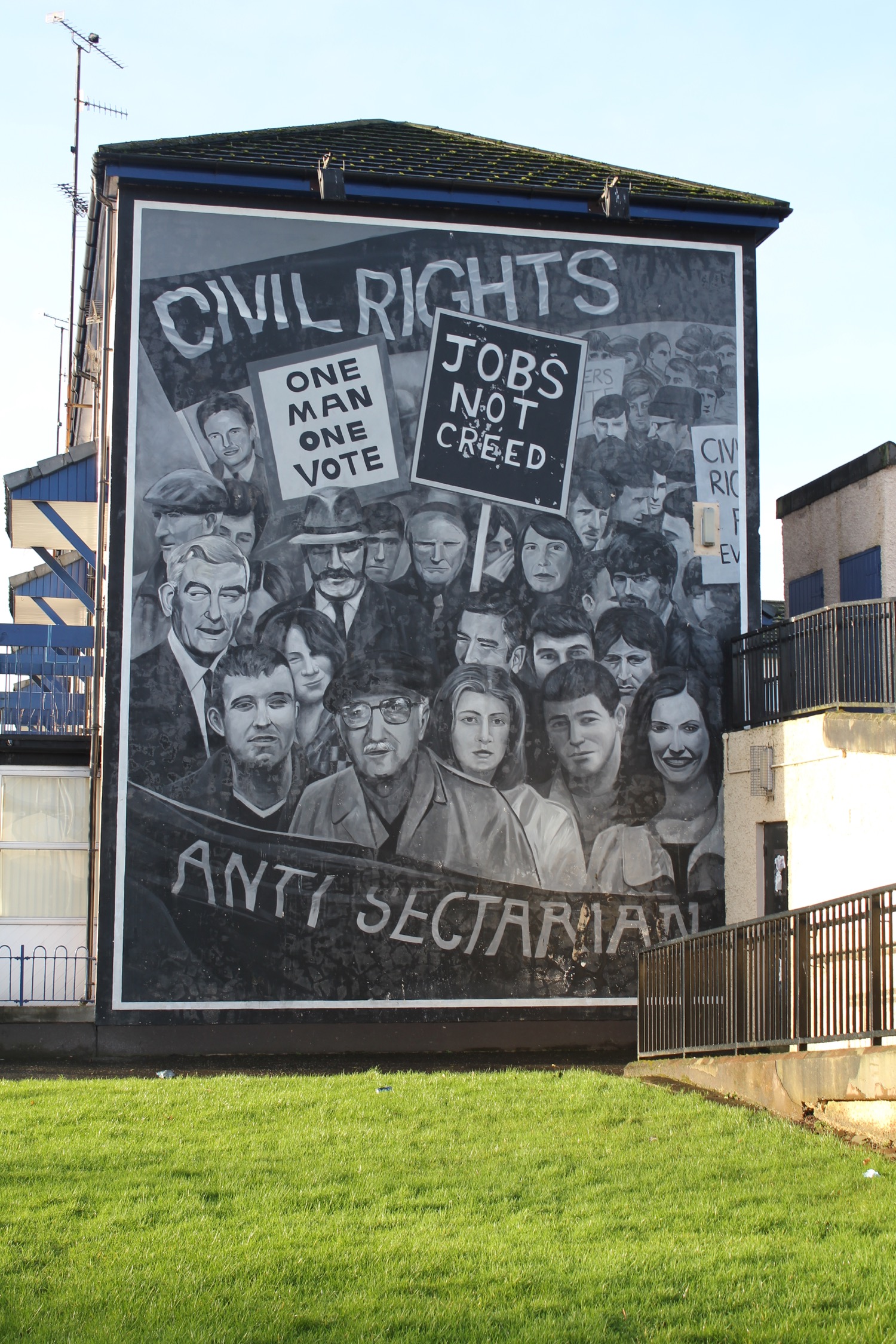
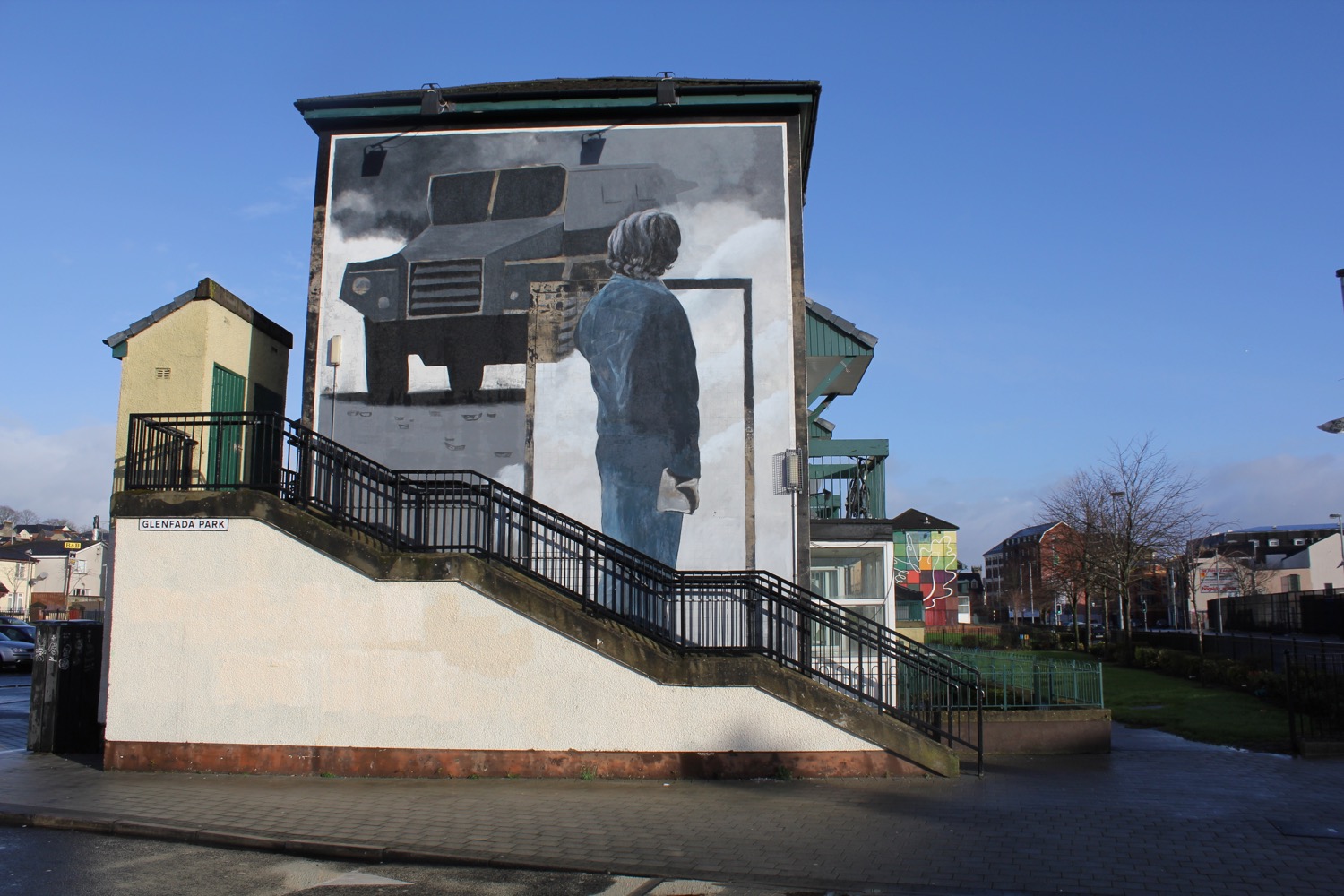
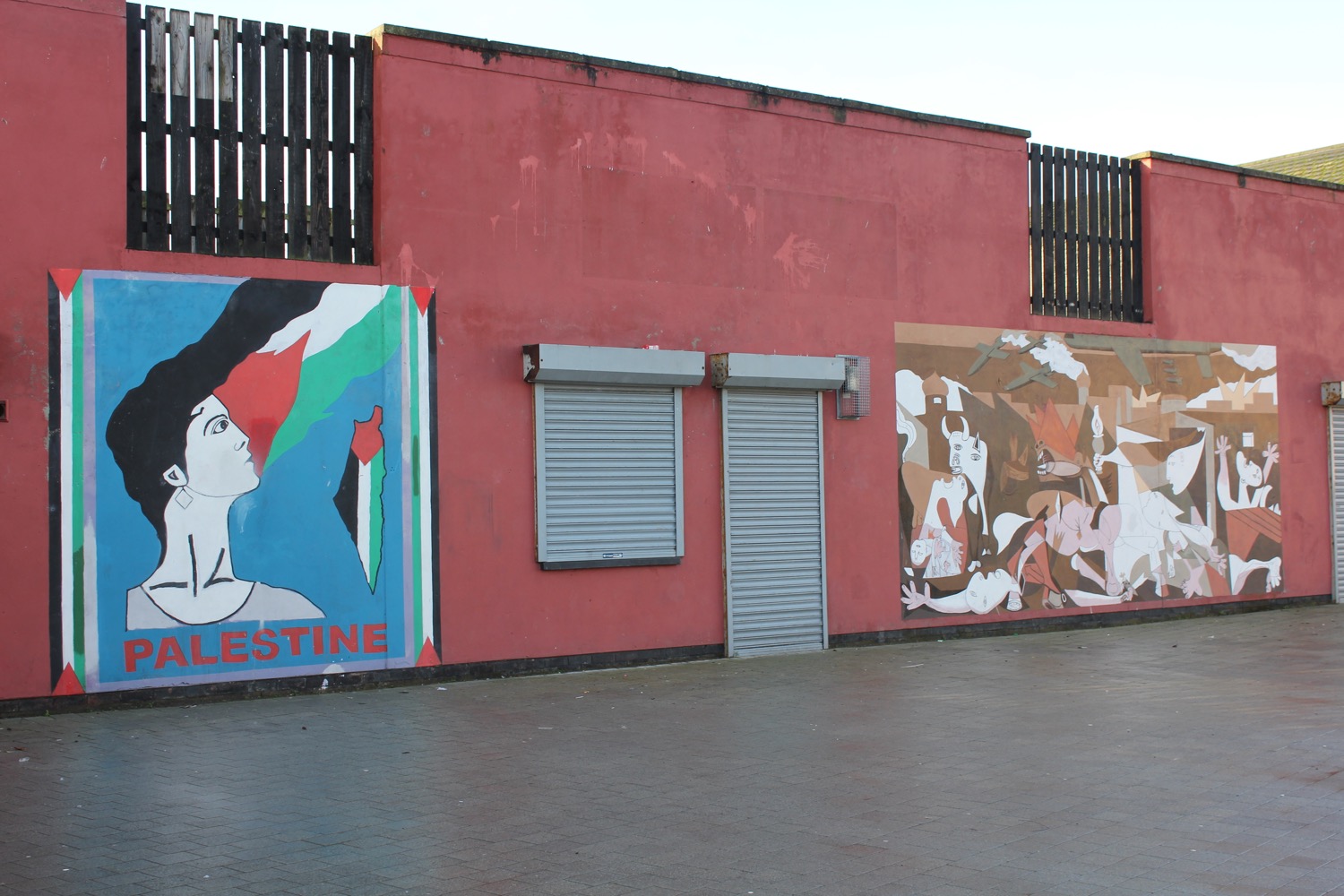
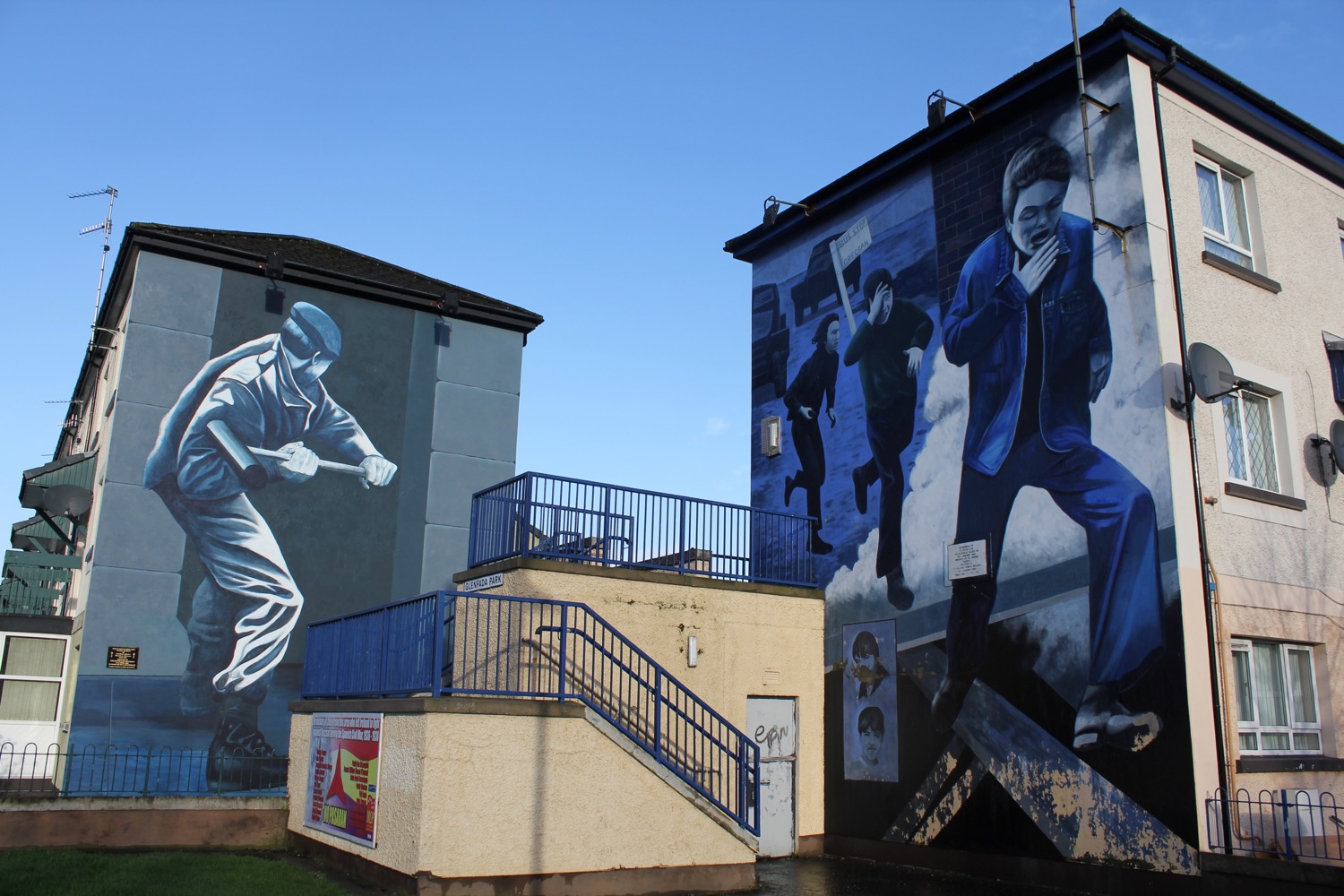
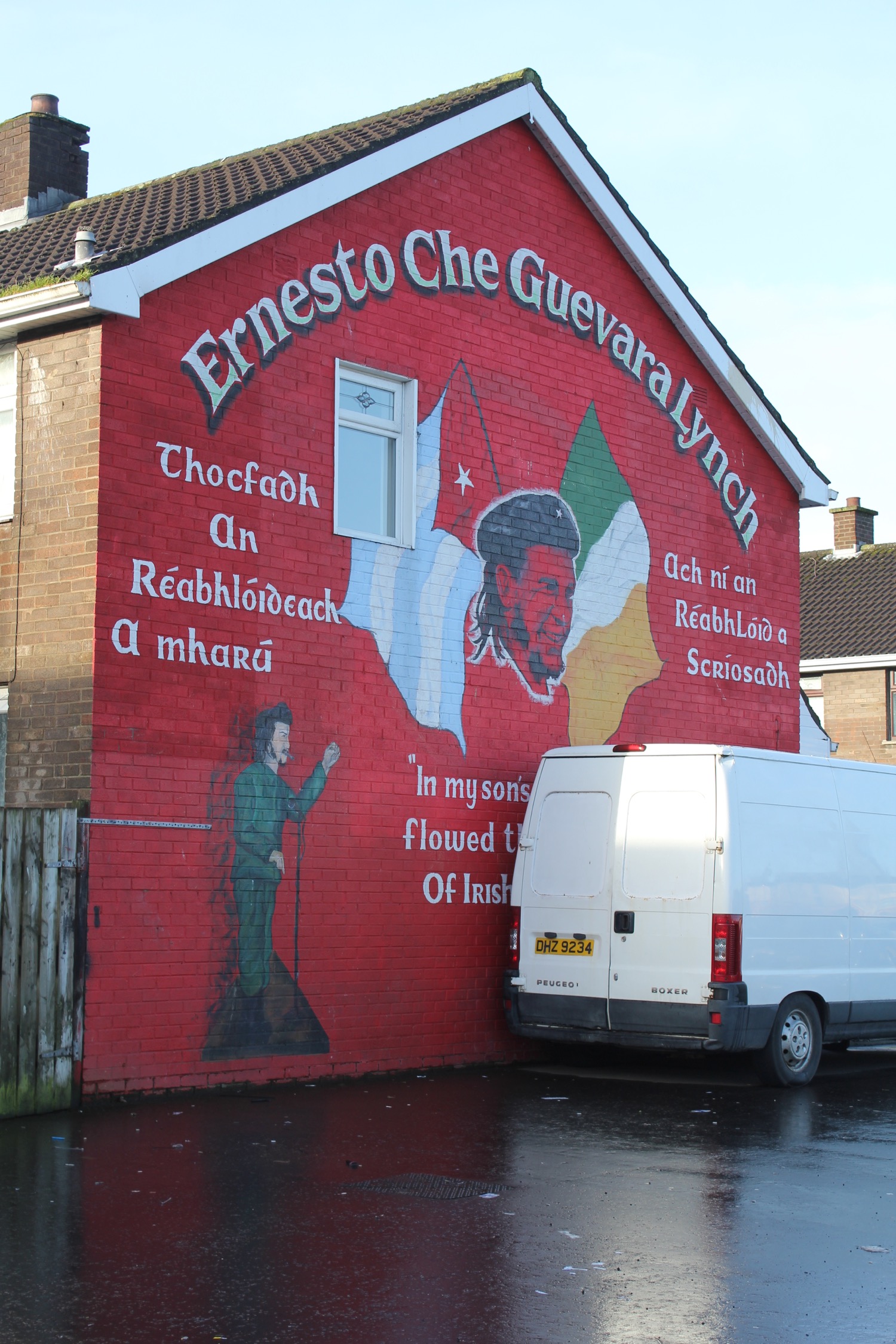
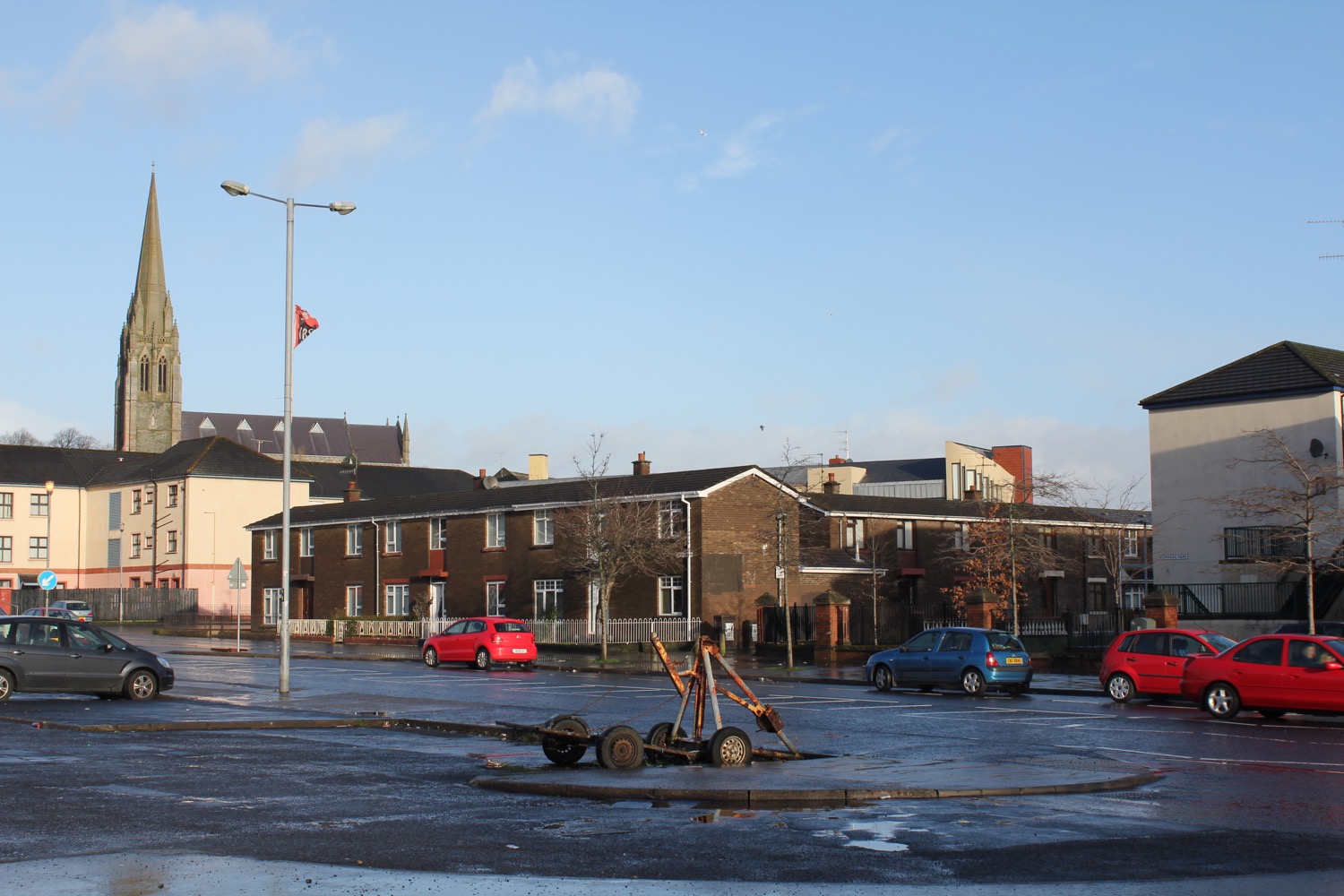
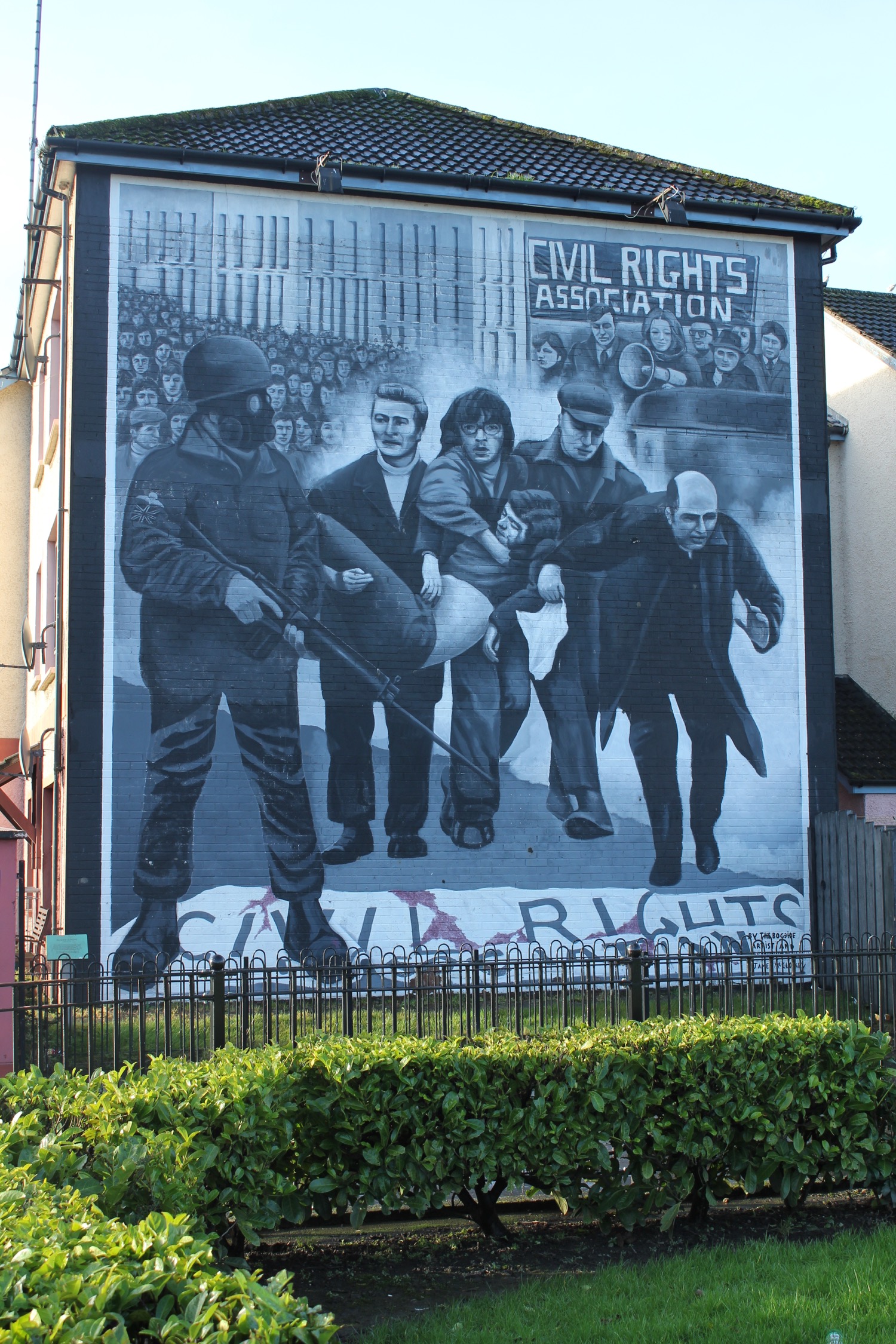
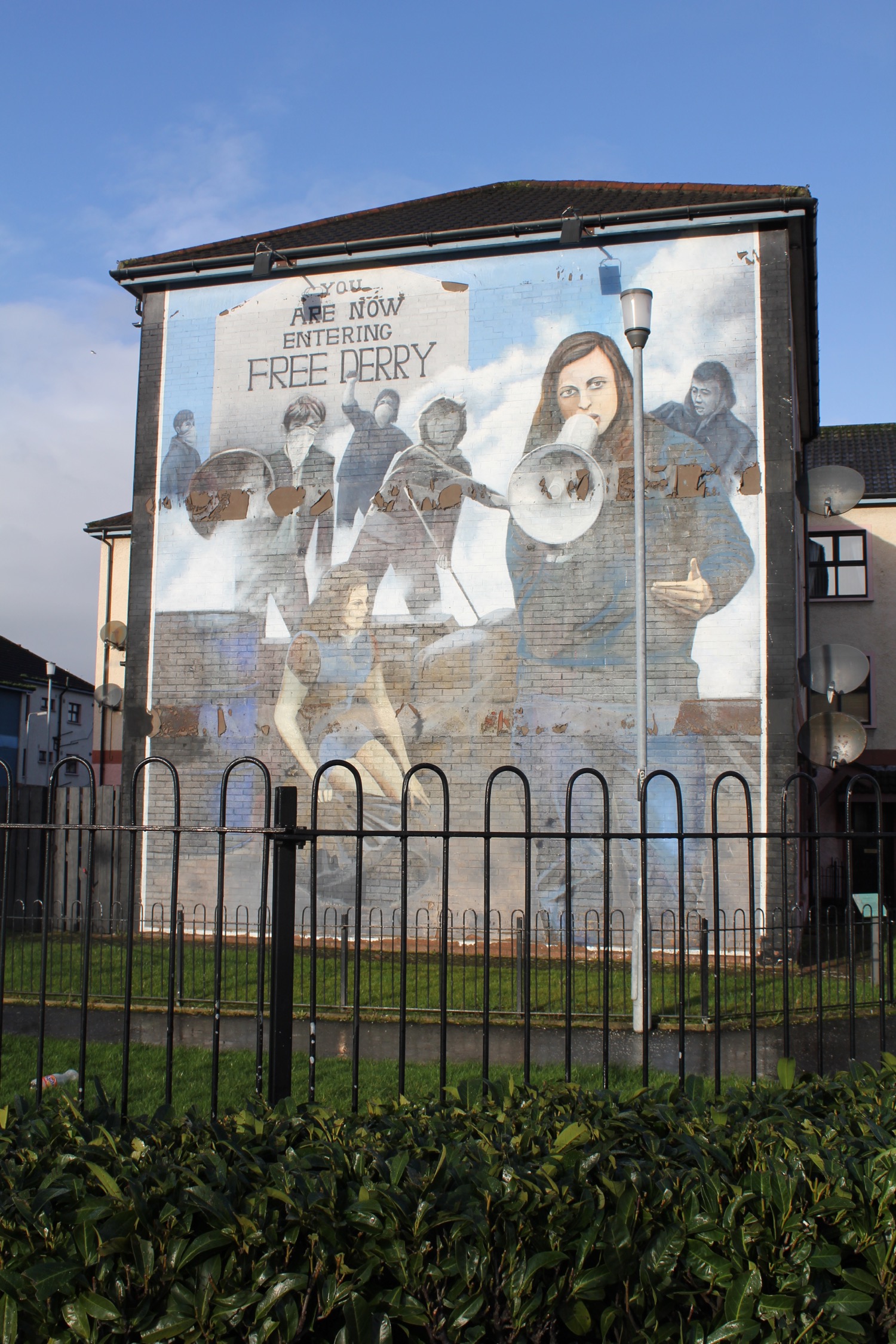
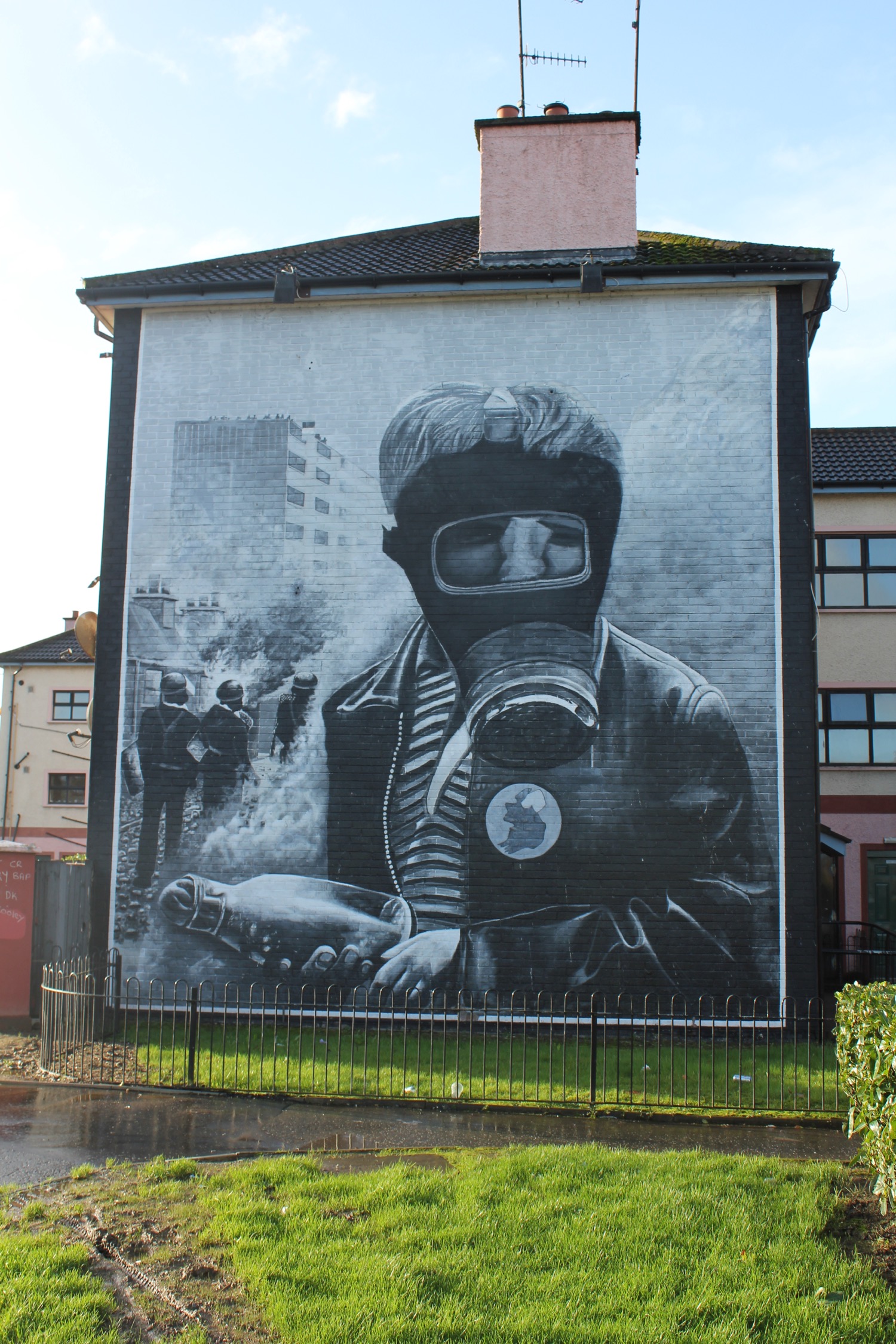
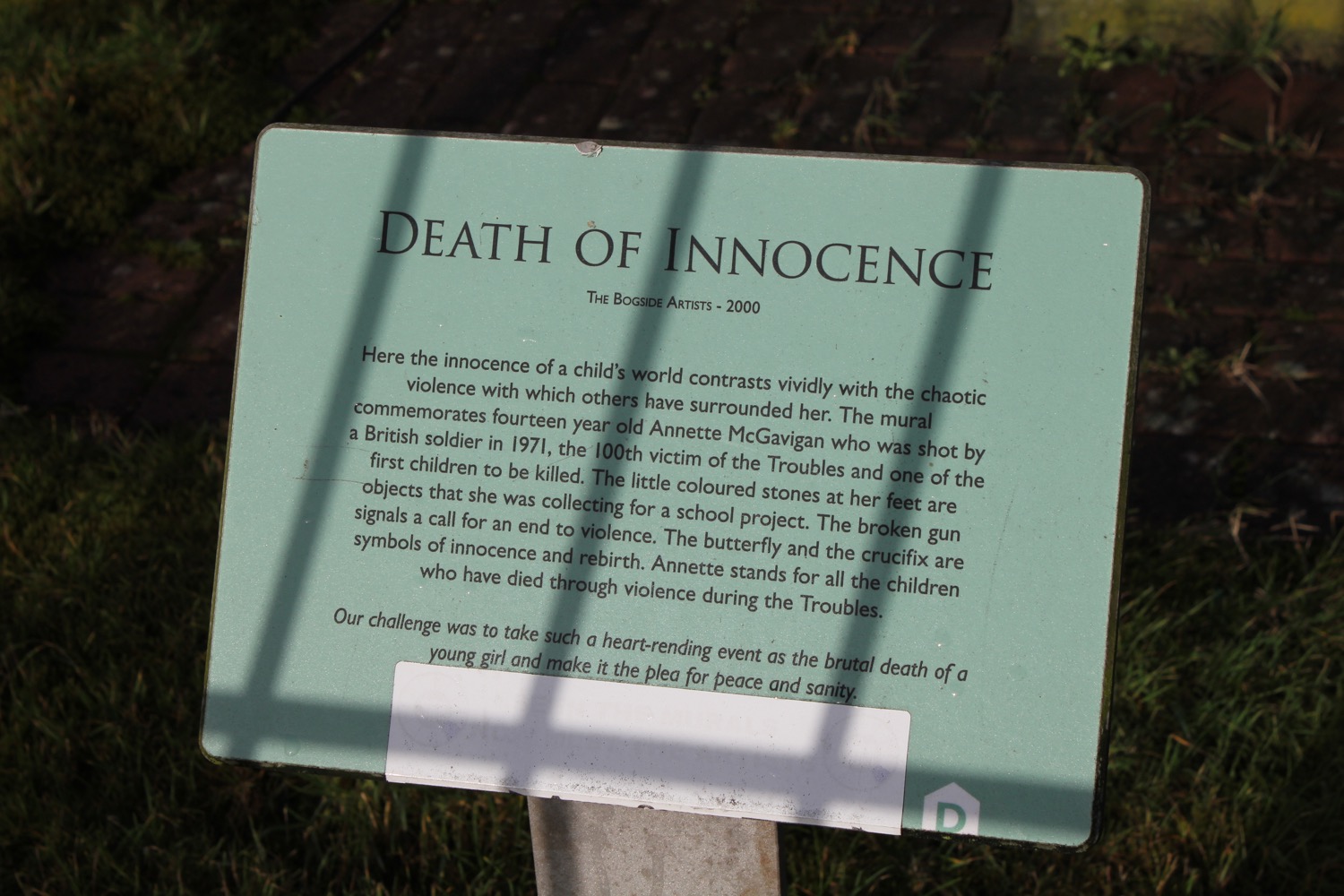
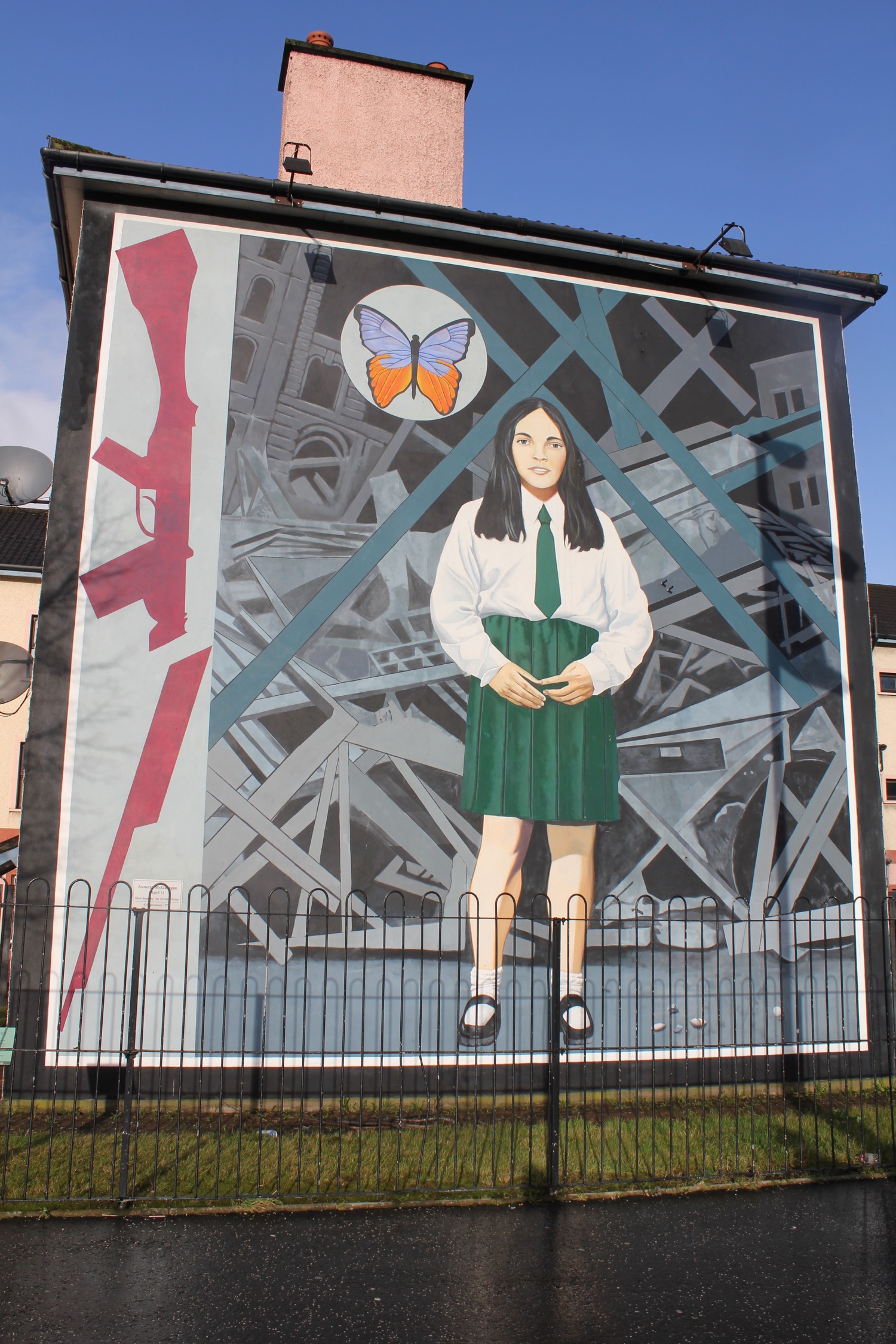
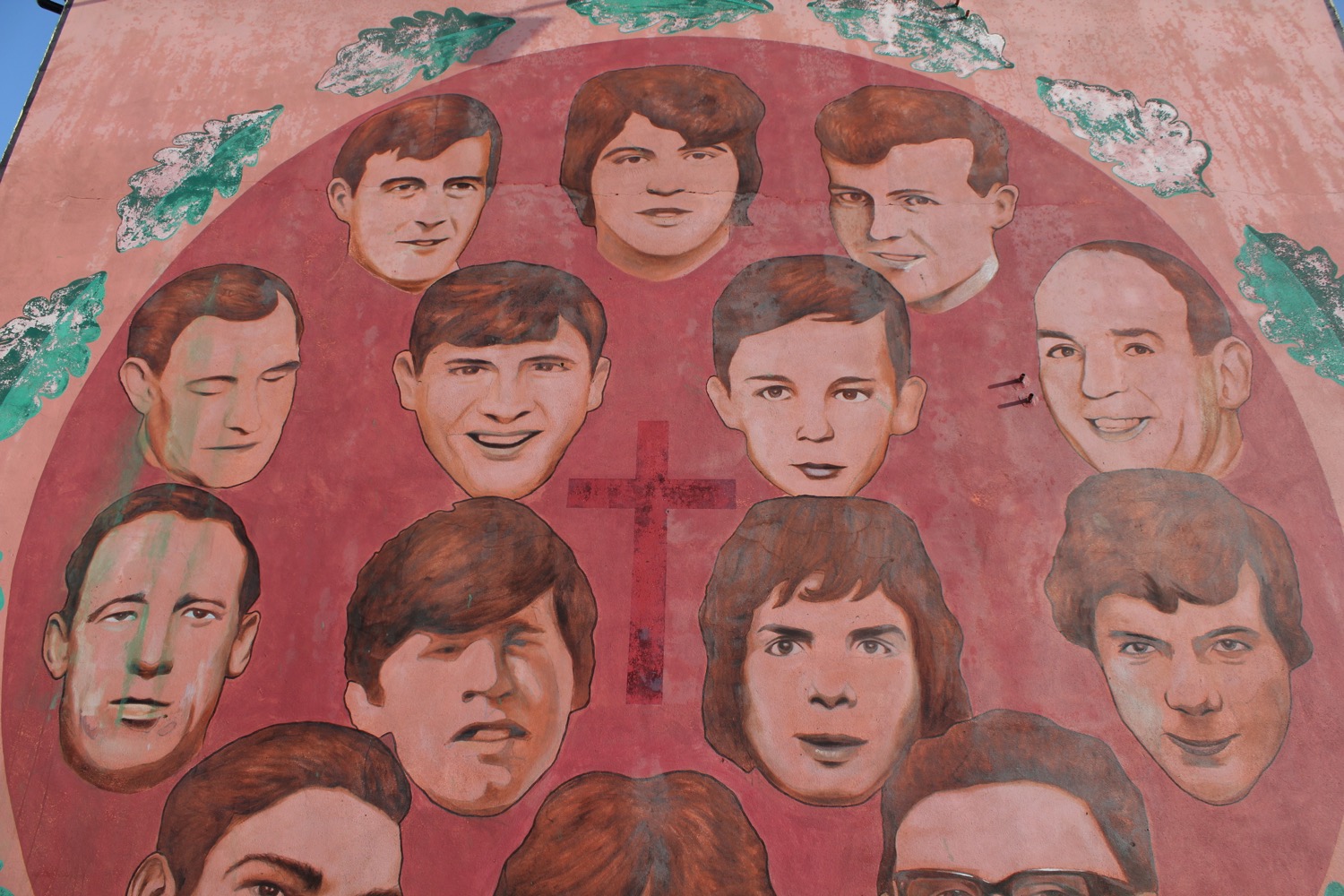
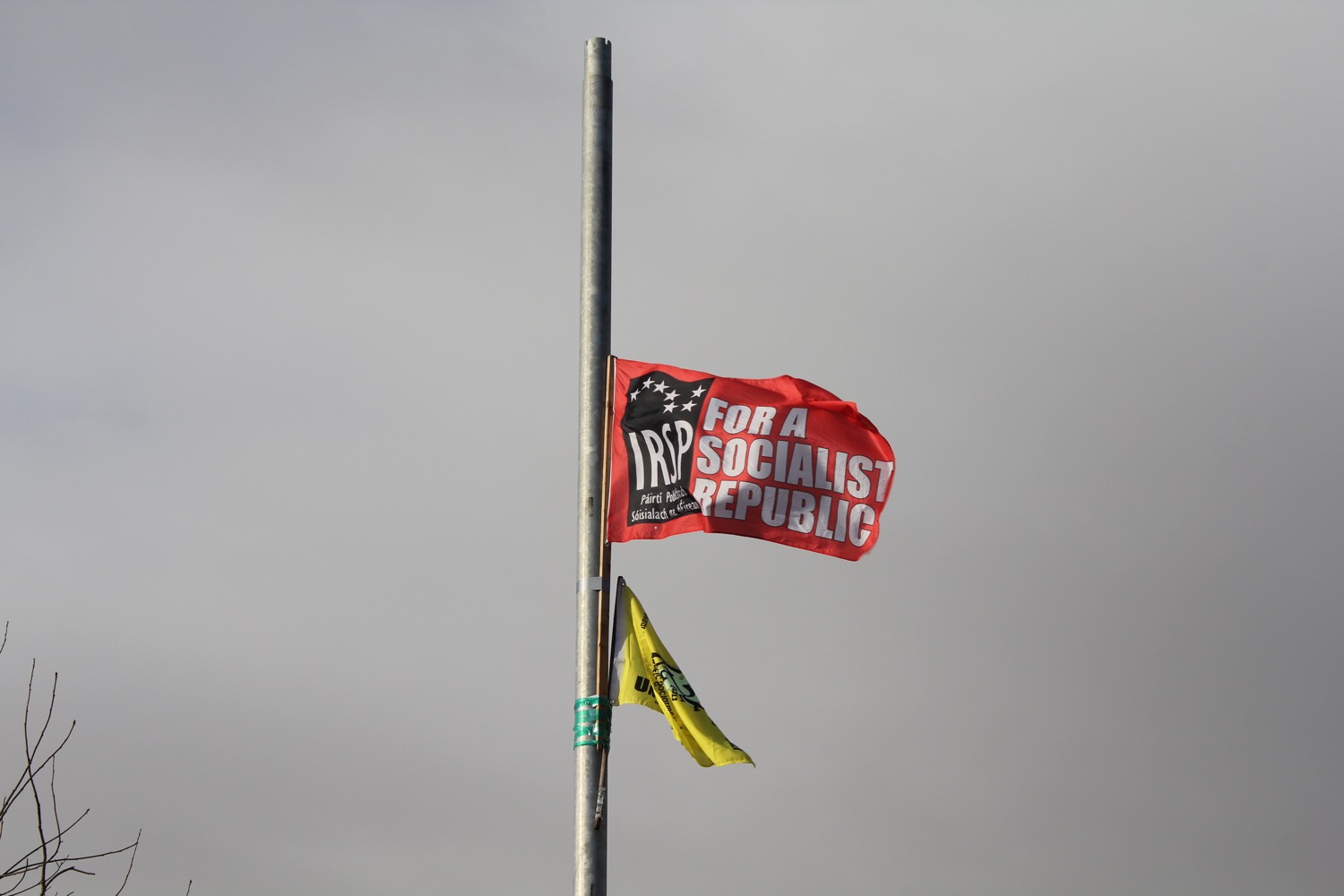
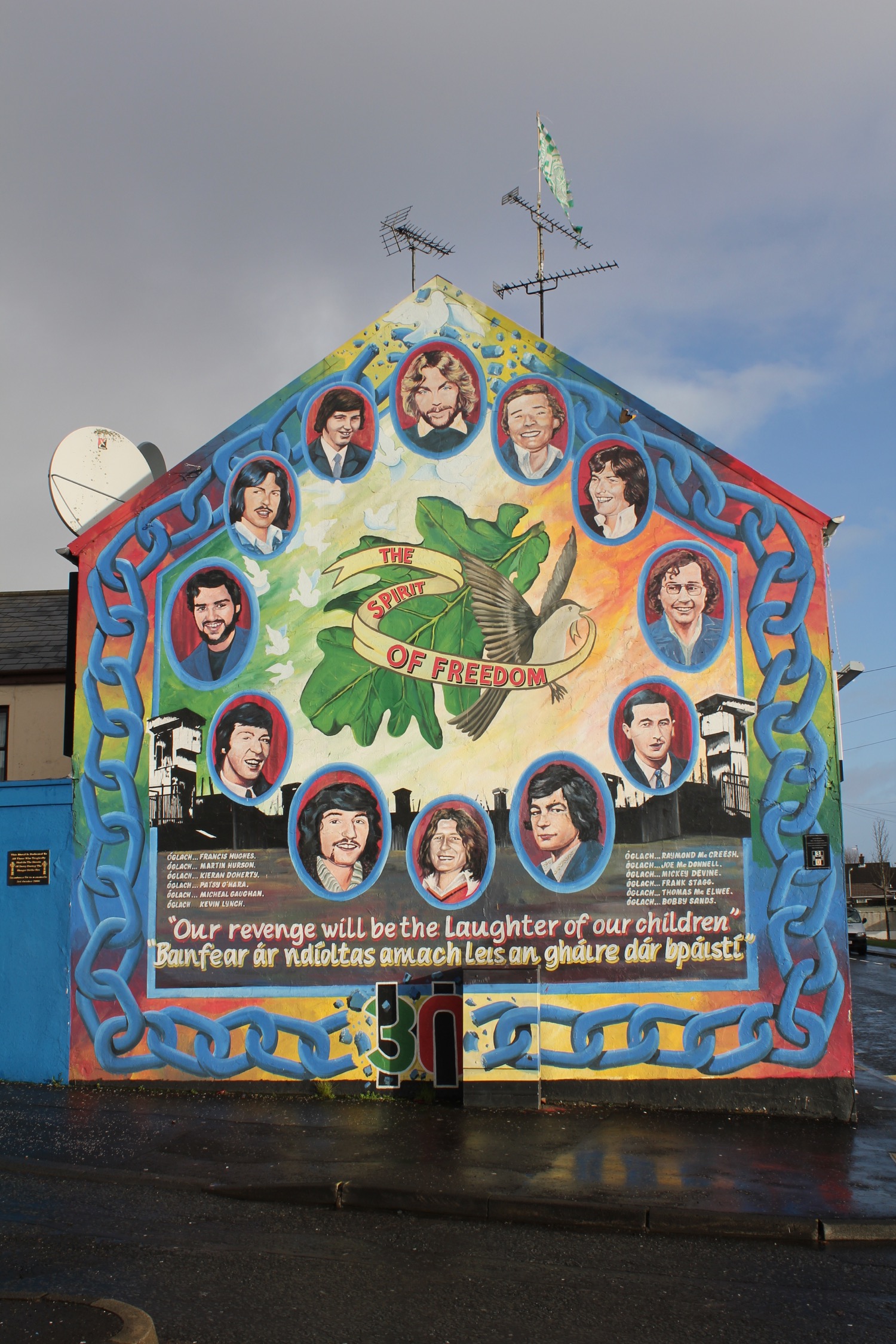
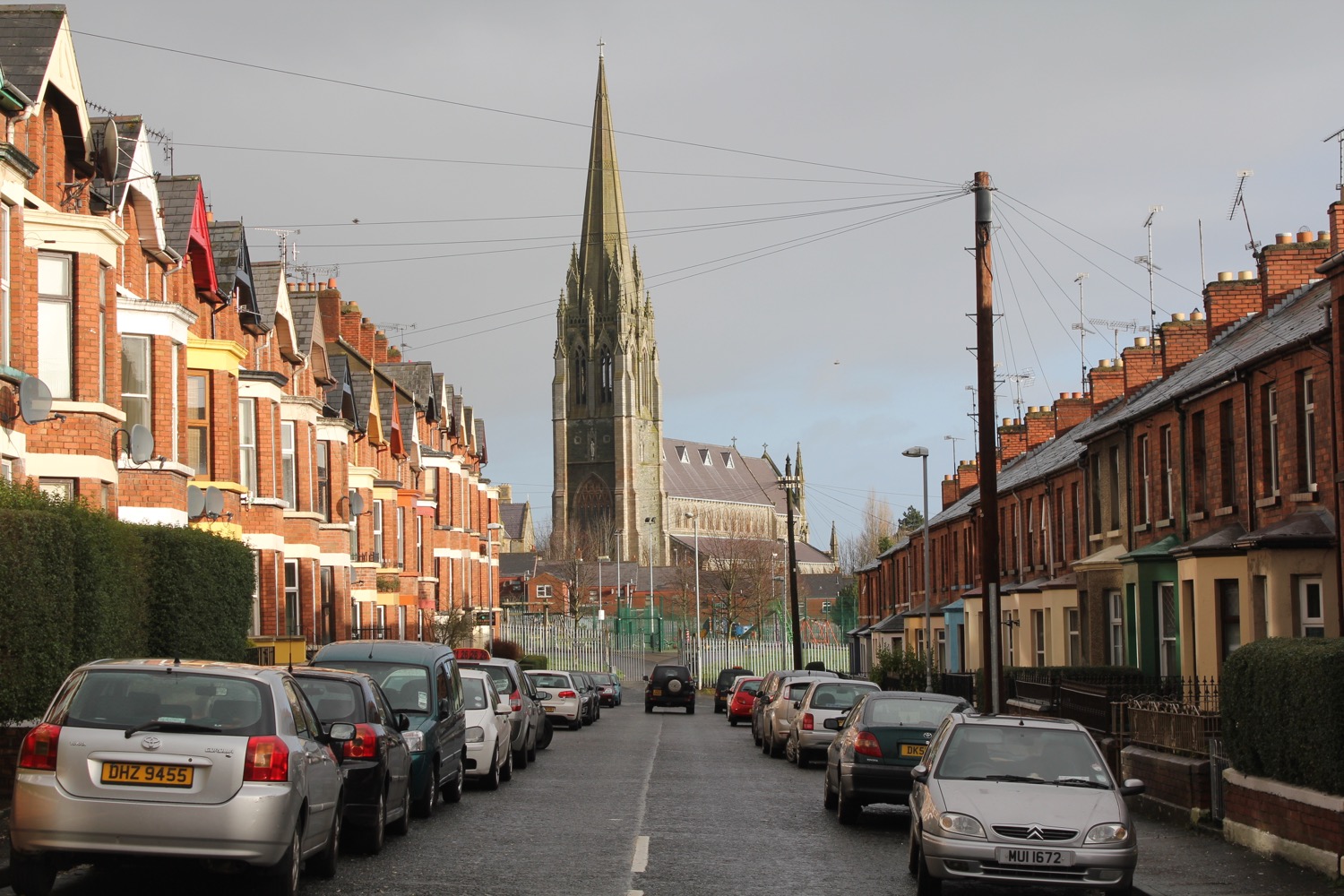
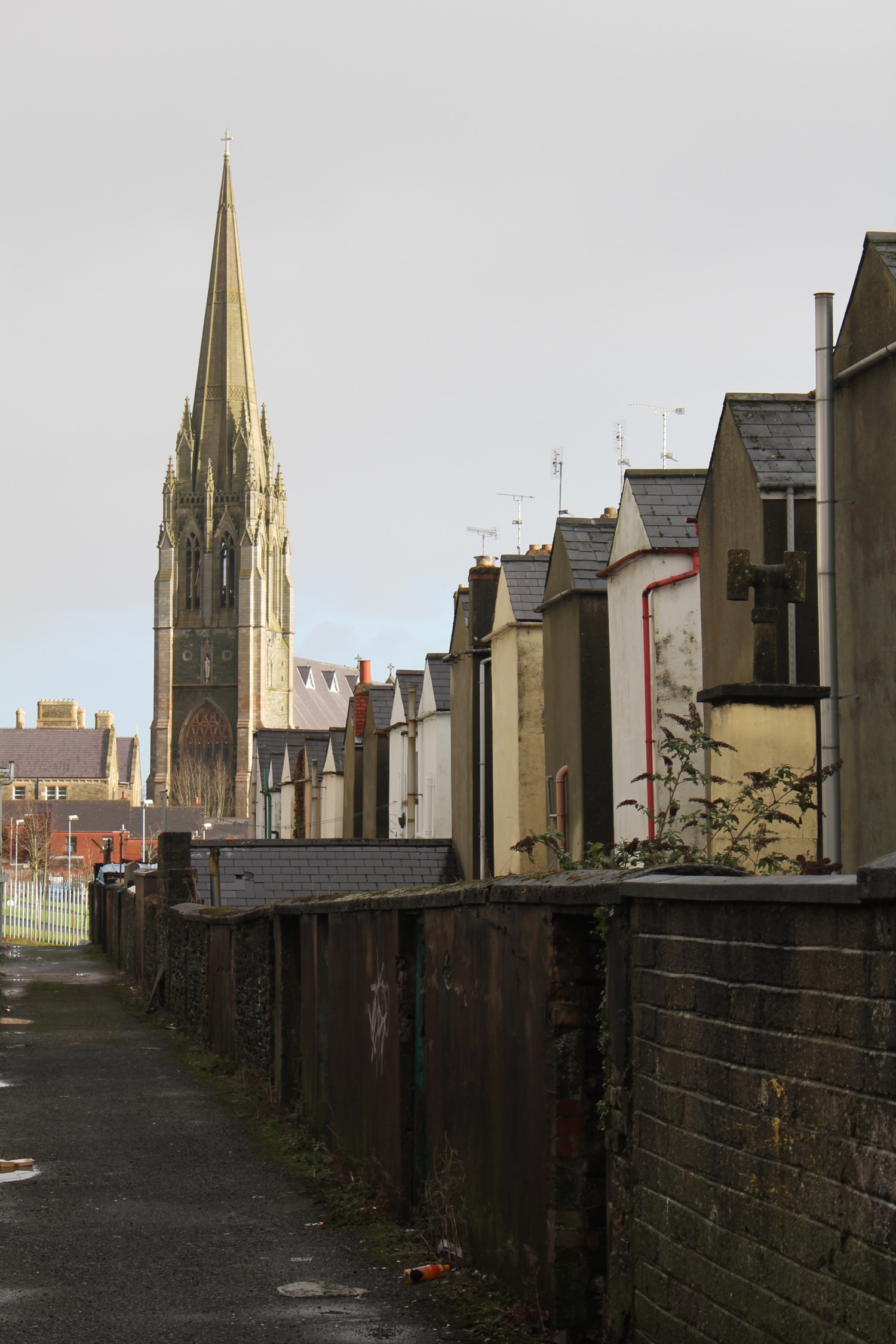
CONCLUSION
How fitting that peace was achieved on Good Friday, yet how sad that it took 50,000 casualties to finally forge a lasting compromise. Peace remains fragile and should not be taken for granted. Mistrust and inequality remain. But let us celebrate the 20th anniversary of this peaceful end to conflict. Let us also learn from this dark chapter in history by affirming this day the dignity of every human being.


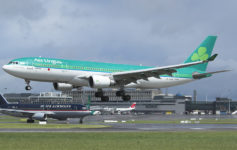

It’s worth mentioning that North Ireland’s future might (will?) be complicated by Brexit:
https://www.foreignaffairs.com/articles/ireland/2018-03-29/northern-irelands-brexit-problem
I rarely ever watch in-flight movies. During my recent VA flight from MEL-LAX, I was intrigued and curious and started watching “The Journey,” a mostly fictional docu-drama about the development of the friendship between Mr. Paisley and Mr. McGuinness. Needless to say, both are highly caricatured, Mr. Paisley more so. The Guardian has some good take on the film, with the following quotes from others: “… the danger is that such cultural artefacts often become shorthand for wider understandings of the peace process” and “a perfect example of why Hollywood should not be allowed anywhere near recent history. Unfortunately a lot of people will see this film and believe it.”
Sadly, so many derive their perception and a flawed understanding of history based on biased and fictionalized accounts of events. I was planning on encouraging my 17-year old son, sitting next to me, to watch it but changed my mind. I had the occasion to briefly meet Mr. Paisley 15+ years ago; and he is nowhere close to the way he is cartoonishly portrayed here.
A return to a post-Brexit ‘hard border’ would possibly unravel the peace process and agreement. Too many years have passed without a real border whereby the younger generations would rebel against a controlled border. The die are cast and the future must be an Ireland that is seamless in its day-to-day societal construct. That said there is a great irony that has taken place in the past 20 years, viz. mass migration from the Islamic and third worlds into the Irish Republic and Ulster. The dilution of the demographic has weakened to a degree the still-dominant (for now) Catholic-Protestant paradigm whilst injecting a great and growing danger in the form of radical Islam. Ireland might be past The Troubles only to see new ones: Jihad terror. What a world.
Great insight. I’m sure you are aware of the damn near subversive plan that is Ireland 2040. Absolutely disgusting, goodbye Ireland.
Figures this happens in a place like Ireland. Rampant alcoholism and structural problems in their society. I blame the catholics.
While this is certainly an interesting and well-written story, I’d like to point out that it’s not actually the 20th anniversary, as Good Friday doesn’t occur on the same day every year:
https://en.wikipedia.org/wiki/Good_Friday_Agreement
In 1998, Good Friday fell on April 10.
I was waiting for this comment! 😉
Close enough.
Reality is for sure a lot more nuanced than Hollywood likes to think.
My own family ancestry happens to be mainly Irish Catholic on my father’s side but Scottish Presbyterian on my mother’s. Many people across the British Isles have similarly mixed backgrounds and seriously struggle to understand why Northern Ireland stays so divided. This is particularly because the rest of Ireland has very much moved on.
When British troops were orginally deployed, the intention was actually to protect Catholics from the Protestants. They were even garlanded with roses. However, as happens in many such conflicts, the troops were not trained to handle civil disturbances well and a backlash was provoked. Ultimately, nobody likes “foreign” troops constantly marching down their streets. It’s a lesson we can all do to remember in different situations such as the Middle East.
With respect to the border, the EU Commission is deliberately making mischief here to frustrate Brexit and rejecting automated ways to allow goods to be customs cleared. Their behaviour is quite dangerous. Pre the 1970s, the border was open. Anyone travelling from Dublin to London is not required to show a passport either ( although it must be shown to go elsewhere in the EU ) and the right of Irish citizens to settle in the UK and vice versa without the need for a visa long predates the EU. There is a list of other mutual rights ( including voting ) that also predate the EU.
All that should be spilt
are tears of frustration
All that should be raised
are the hopes of all
All that should be broken
are the barriers that stand
All that should be found
are a peace givers wisdom
All that should be remembered
are the spirits of sacrifice
All that should be taken
are a respect we are given
All that should be seen
are our children’s dream…❤
It’s quality material like this that keeps me coming back to this blog- informative and beautifully written. Thanks Matthew!